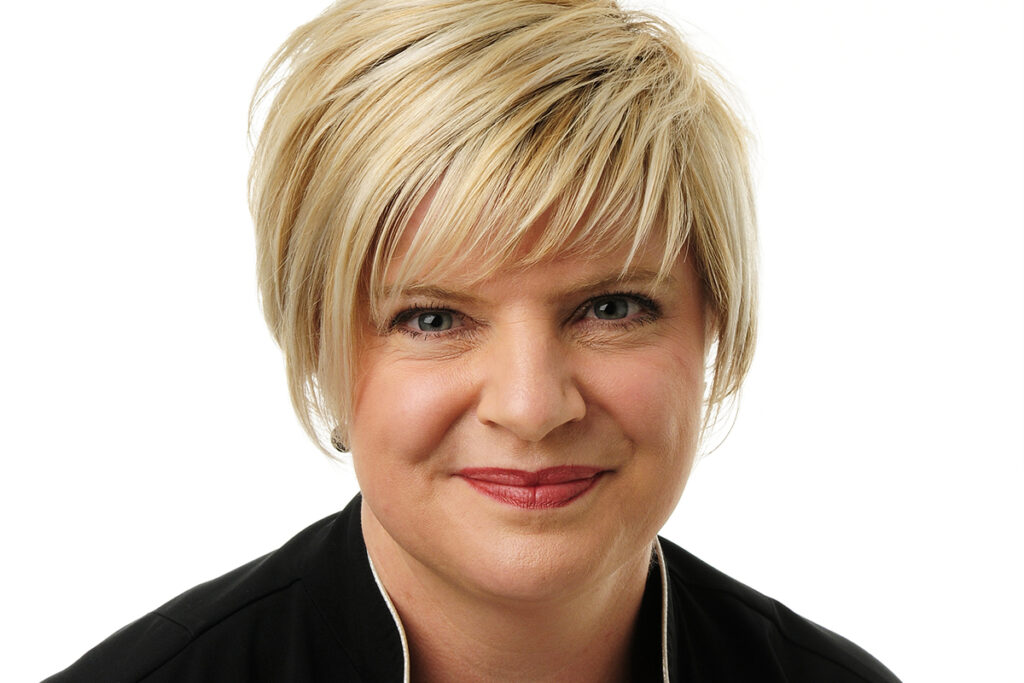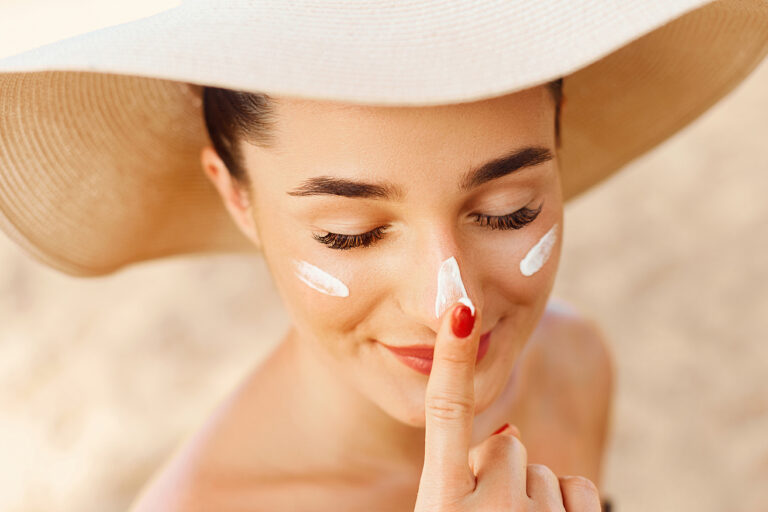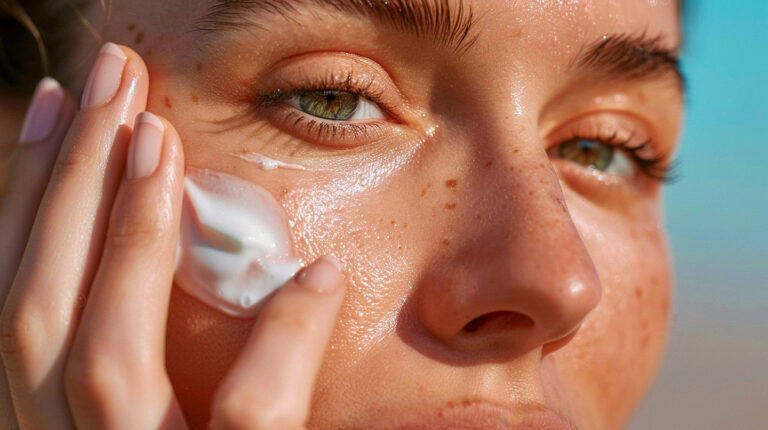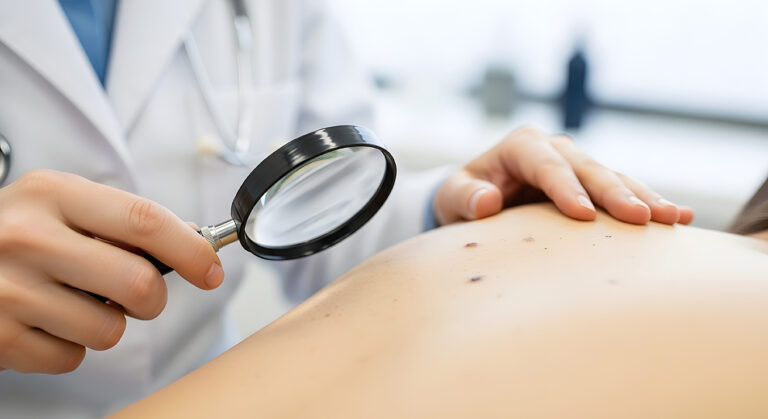

Check in Perth



15628
+15628
+Newly diagnosed cases of melanoma in 2019
2200
+2200
+Australians die from skin cancer each year
1107837
+1107837
+Keratinocyte cancers were treated in 2022
SKIN CHECK
It's time to check your skin Book your head to toe skin check today
MOLE CHECK
Early detection of skin cancer saves lives No referral needed
SKIN CANCER
Make annual skin checks part of your early detection strategy

ABOUT US
Our clinic, conveniently located in the heart of Subiaco, offers comprehensive skin cancer check-ups in Perth. You can have piece of mind knowing your clinician that performs your skin check is highly qualified in the field of skin cancer medicine. We will thoroughly check your skin from head to toe and If we find something that looks suspicious we will refer you for diagnosis, management and or treatment. Skin checks are the best way to find skin cancer early and early detection of skin cancer provides the best treatment outcomes. Book your full body skin check up in Perth today.
Why Choose Skin Chx for Your Skin Cancer Check in Perth
Certified Practitioner
Our certified practitioner Christine Comans is a Dermal Clinician, holds a Graduate Certificate in Skin Cancer Medicine and a degree in Clinical Aesthetics, bringing advanced skills in skin cancer detection.
Advance Tools
At Skin Chx, we use state-of-the-art dermatoscopy and imaging tools to provide precise and thorough skin cancer checks, ensuring early detection and prompt referral for diagnosis.
Early Detection
At Skin Chx, we prioritise early detection of skin cancer to increase treatment success rates, providing comprehensive checks to identify issues at the earliest stage.
About Christine Comans
GCMed (Skin Cancer Medicine) BAppHSc (Clinical Aesthetics)

Christine has studied skin cancer medicine at the University of Queensland. Last year she performed more than 3000 skin cancer screenings on individual persons in the workplace. Chris has travelled extensively all across WA to perform workplace skin checks and as a Subiaco local she is proud to provide skin cancer screening in Perth & surrounding areas for her local community.
Christine’s academic achievements include;
Graduate Certificate in Medicine in the field of skin cancer medicine Bachelor of applied health science (clinical aesthetics)
Chris is passionate about skin and has studied skin extensively, not only is she trained in diagnosis and management of skin cancers, she is a Dermal Clinician with advanced knowledge in skin science from her undergraduate degree and many years working in clinical practice.
Trusted Skin Cancer Clinic Near You in Perth
Looking for a trusted skin cancer clinic near you in Perth? Visit Skin Chx in Subiaco for comprehensive skin cancer checks by certified practitioners, utilising advanced dermoscopy tools for early detection and peace of mind. Book your appointment today!
Common Questions
Who should have a skin cancer check?
Anyone who is higher risk for skin cancer: people with fair skin, freckles, red or blond hair people with frequent sun exposure – outdoor jobs or sports/hobbies those with a family history of skin cancer patients who have had a past skin cancer patients on immune modulating medications / transplant patients those with multiple moles/freckles anyone who is worried about skin cancer or who has a changing or new mole/spot
At what age should you first have a skin check?
There is no particular age that is recommended to start skin cancer checks. We recommend persons in thier early 20’s if they are interested, they come in for a once off check and education about skin cancer and its prevention. Very rarely a skin cancer can occur in children, so if a spot is very odd or rapidly changing even children should come in for a check.
What is involved in a full body skin check?
During your skin cancer check in Perth, you will not be removing all your clothes, you will leave your underwear on. Make sure you attend with no makeup, nail polish removed and make note of any spots you would like to discuss. During your skin check your clinician will systematically look at your skin part by part, inspecting any lesions of concern with a dermatoscope (a special skin microscope). Sometimes photos of particular lesions will be taken and uploaded into your clinical file. If anything suspicious is found on your skin, we will take a photograph and refer you for diagnosis, management and or treatment.
What changes should I watch for in a skin spot, bump, or blemish?
“Change” itself is a serious symptom to watch for, particularly something growing/thickening and changing over several weeks or months. It is also good to keep the “ABCDE’s” of skin cancer detection in mind. A= asymmetry B = border (irregular or non distinct) C = colour – more than one colour, changing colour, different colour to other lesions D = diameter (enlarging diameter, or diameter > 6mm) E = evolution (or as above “CHANGE”!)
Can skin cancer affect areas of skin that are not exposed to the sun?
Yes it can! It is much more likely to affect sun damaged areas or as we like to call them “high impact sites” The most common places are the areas of the body that are most often exposed to the sun, such as face, ears, forearms and back of hands. But anywhere you have skin it is possible to get skin cancer, that is why we suggest you pay attention to your own skin – Know your skin and know your moles.
What is the best prevention for skin cancer?
Slip (on a shirt), slop (on sunscreen), slap (on a hat), slide (on sunglasses) and seek (shade). Have a regular yearly skin cancer check to detect lesions at an early treatable stage.
What should I be looking for on my own skin?
We want you to know your skin, most skin cancers will grow as a new spot or blotch on your skin. We also want you to know your moles, that’s so you know if they’re growing or changing. You should pay attention to anything new growing on your skin. Pink crusty, scaley, ulcerated, grows or bleeds over a short time frame should be checked regardless if it is dark or pink. If you notice any new or changing moles or skin lesions that do not resolve in 4-6 weeks we strongly suggest to book an appointment as soon as possible. Some changes to look out for: New skin lesions Change in colour Becomes raised or lumpy Increases in size Bleeds or weeps Becomes rough or scaly Becomes itchy or sore Looks different to your other moles and lesions Skin cancer can be a range of shapes, sizes, and colour. If in doubt, let us check it out!
What is the difference between chemical sunscreen and zinc cream?
Sunscreen uses ingredients to absorb and reflect UV rays. Zinc uses the same ingredients to absorb and reflect UV rays. We recommend just finding a product you like, that feels good on your skin and something that you’re happy to wear each day. The application and then the reapplication are important factors to preventing sunburn and skin cancer.
How much sun do we need for Vitamin D?
few minutes of sunlight exposure outside peak UV periods on most days of the week can be sufficient for most people to maintain healthy vitamin D levels, depending on skin type and geographical location
Is chopping the lesion out (excision) the only way to treat skin cancer?
Excision is a common way to treat skin cancer. Sometimes there are other options depending on the type of cancer or pre-cancerous lesion and the location. Treatment options may include freezing with liquid nitrogen, PDT (photo dynamic therapy), Laser, immune modulating creams such as Aldara, Effudex or radiotherapy. Your Doctor will discuss the best treatment options for your individual circumstances.
What are the main types of skin cancer?
Skin cancer results from abnormal growth of skin cells, most often due to UV radiation exposure. The most common types of skin cancers are basal cell carcinoma (BCC), squamous cell carcinoma (SCC), and melanoma, with varying degrees of severity.
Is it only necessary to wear sunscreen on hot, sunny days?
UV radiation, which causes sunburn and skin damage, can be high even on cool or cloudy days, so protection is necessary whenever the UV index is 3 or above. Outdoor workers should apply sunscreen every day regardless of UV index
What is the SunSmart app?
This is a great free app that you can download from the app store or via the SunSmart app website. It will give you information about the UV rating each day – calculated from local weather reports, and apply this to your skin type/age to advise you when you need to use sun protection for the day. https://www.sunsmart.com.au/
Latest Post

Outdoor Workers in Western Australia: Why Sunscreen Matters Every Day, No Matter the UV Level
Across Australia and especially here in Western Australia, where the sun is intense, the skies are clear, and outdoor industries dominate, thousands of people work outside every single day. Tradies, marine crews, FIFO workers, mining personnel, farmers, transport operators, landscapers, and council teams all face something they often underestimate: constant,

Choosing Sunscreen in 2026: What You Really Need to Know
With summer well underway and UV levels soaring across Australia, many people are feeling uncertain about sunscreen after the recent recalls and testing failures. When something we rely on for protection comes under scrutiny, it’s natural to wonder which products are actually safe and effective. The truth is: sunscreen remains

Summer in WA: Why Your Skin Cancer Risk Rises – And How Skin ChX Helps Protect You
With summer fast approaching in Western Australia, it’s important to remember that evenTen minutes of unprotected sun exposure can damage your skin. Sunburn, premature ageing, and potentially deadly skin cancers are all consequences of UV radiation, something our state experiences at some of the highest levels in the world. But